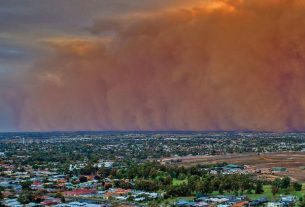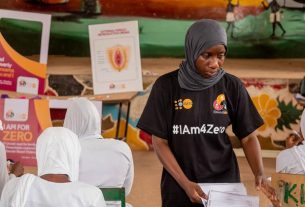By Thenewsintel Staff | 15/06/2025
The escalating conflict between Israel and Iran is creating growing unease across the Gulf region, as Arab states weigh the risk of being drawn into a broader regional war. In particular, Saudi Arabia and its neighbors are voicing concern over the implications of Israel’s recent strikes on Iranian targets, amid fears that their own territories could become collateral damage.
Only hours after Israel launched pre-dawn strikes targeting Iranian military and nuclear infrastructure, Saudi Arabia issued a strong condemnation. In an official statement, the Saudi Foreign Ministry described the Israeli operation as “blatant aggression against the brotherly Islamic Republic of Iran.”
The use of the term “brotherly,” typically reserved for Arab-majority nations, was seen by observers as a calculated signal of solidarity aimed at distancing Riyadh from any association with Israel’s actions.
Saudi Arabia’s Delicate Balancing Act
The Kingdom’s reaction underscores its complex diplomatic position. For years, Saudi Arabia has cautiously navigated a path between tacit cooperation with Israel and overt support for the Palestinian cause. While not a signatory to the U.S.-brokered Abraham Accords—which normalized ties between Israel and nations such as the United Arab Emirates and Bahrain—Saudi Arabia has maintained discreet coordination with Israel on regional security matters.
Since the October 7, 2023, Hamas-led attack on Israel and the ensuing war in Gaza, Saudi leaders have become increasingly vocal in their criticism of Israeli policies. At a 2024 summit in Riyadh, Crown Prince Mohammed bin Salman accused Israel of committing genocide, amid a death toll in Gaza that has surpassed 55,000, according to Palestinian sources.
Nevertheless, Riyadh has allowed Israeli commercial flights to cross its airspace en route to the UAE, reflecting its ongoing strategic pragmatism.
“Saudi Arabia finds itself in the eye of the storm,” said Dr. Sebastian Sons, senior researcher at the Bonn-based think tank CARPO. “It is committed to de-escalation with all its neighbors and has sought to act as a platform for diplomacy—including involving Iran.”
Renewed Ties With Iran Under Strain
Saudi Arabia and Iran resumed diplomatic relations in 2023 following a seven-year rift, in a deal brokered by China. Since then, Saudi leaders have pursued what Sons calls a “Saudi model” of regional engagement—prioritizing dialogue and stability over confrontation.
But this fragile détente is being tested. “In the capitals of the Arabian Peninsula, they’re well aware they’re sitting ducks if war breaks out between Israel and Iran,” said Marcus Schneider, head of the Friedrich Ebert Foundation’s Middle East peace and security program. “Unlike Israel, they lack robust missile defense systems.”
Riyadh’s concerns are heightened by the presence of U.S. military forces on its territory—potential targets in the event of further escalation. The risk of retaliatory attacks by Iran-backed groups, including Yemen’s Houthi rebels, remains high. In 2019, the Houthis launched a devastating missile strike on Saudi Aramco facilities, briefly disrupting global oil supplies.
Regional Diplomacy at Risk
The growing instability has already derailed key diplomatic efforts. The sixth round of nuclear negotiations between Iran and Western powers, scheduled to take place in Oman, was cancelled following Israel’s latest strike. In a statement, Oman’s Foreign Ministry condemned the attack and held Israel responsible for any further regional escalation.
Oman has long played a mediating role between Iran and the West, particularly on nuclear issues. The cancellation of talks suggests a shrinking space for diplomacy at a time when it is most needed.
Iraq: Another Flashpoint
In neighboring Iraq, the situation is equally tense. Iran enjoys deep ties with many factions within Iraq’s Popular Mobilization Forces (PMF), a network of Shiite militias with substantial military capabilities and a record of targeting U.S. forces. Washington has responded by withdrawing non-essential embassy staff in recent days.
“If Tehran signals that its national survival is at stake, PMF-aligned groups could launch attacks on U.S. targets,” Schneider warned.
Conclusion
As Israel and Iran move closer to open confrontation, the Gulf states—particularly Saudi Arabia—find themselves in a perilous position. Their efforts to build regional stability and maintain diplomatic balance are increasingly strained under the weight of expanding military hostilities.
While Saudi Arabia and its neighbors continue to advocate for de-escalation, the risk of being pulled into a wider conflict appears to be growing, with significant implications for regional security, energy markets, and global diplomacy.
Sources: DW, Saudi Foreign Ministry, Friedrich Ebert Foundation, CARPO, U.S. State Department
Based on DW Article by Kersten Knipp (DW)



